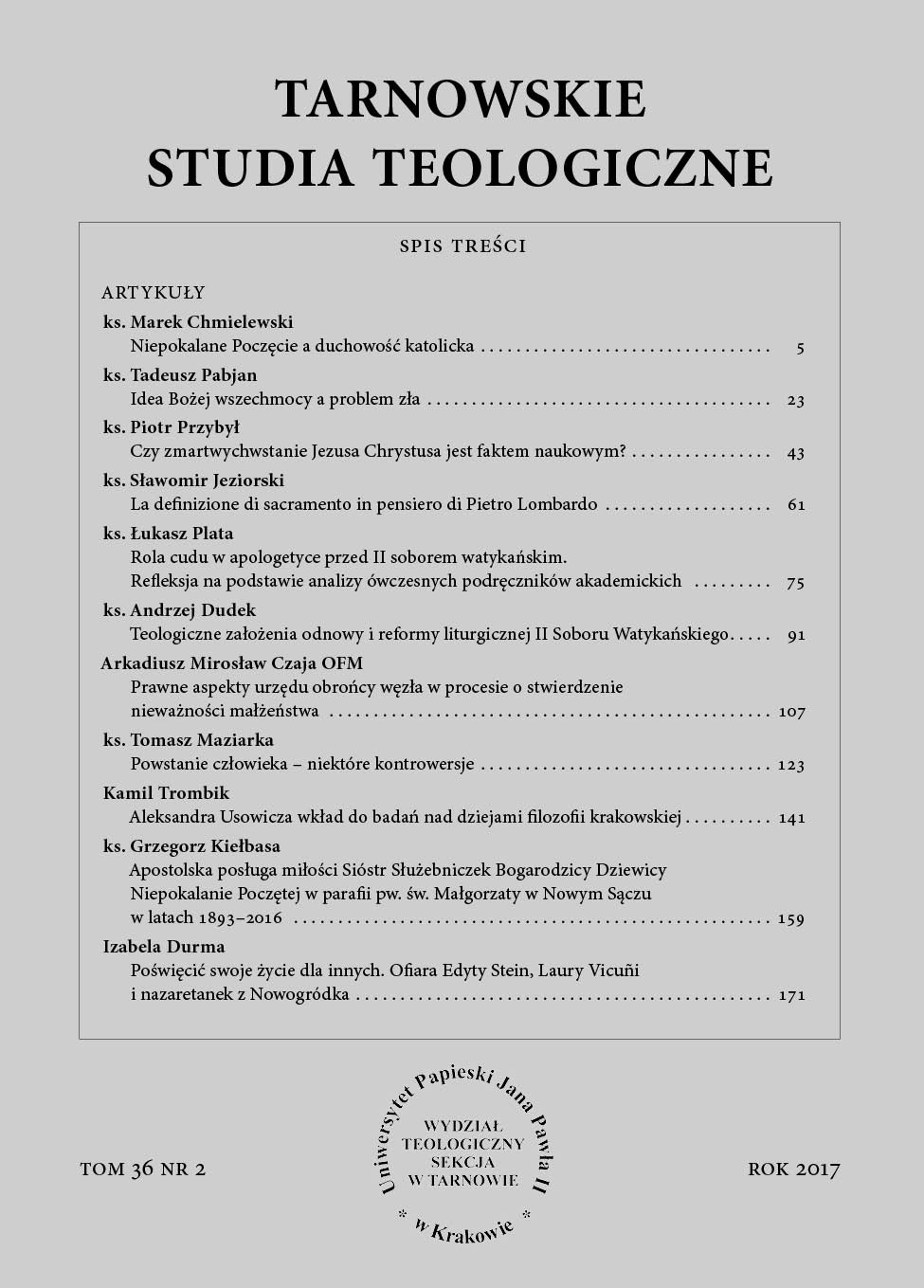Konstanty Michalski CM – historyk filozofii wieków średnich
Konstanty Michalski, CM, a Historian of Medieval Philosophy
Author(s): Stanisław PiechSubject(s): Philosophy of Middle Ages
Published by: Wydawnictwo Naukowe Uniwersytetu Papieskiego Jana Pawła II w Krakowie
Keywords: Michalski Konstanty; history of philosophy; scholastics; medieval Polish philosophy; Corpus Philosophorum Medii Aevi; Dante Alighieri; Jagiellonian University;
Summary/Abstract: Rev. Konstanty Michalski, CM, (1879–1947), a philosopher, historian of philosophy, professor and rector of the Jagiellonian University as well as an active member of the Historical-Philosophical Department of the Polish Academy of Learning; he was chairman of the Commission of the History of Philosophy in Poland and Vice-Director of the Department. He experienced the horrors of the concentration camp in Sachsenhausen near Berlin. Michalski’s academic achievements in the field of the history of medieval thought include three thematic groups: Polish philosophy, Western philosophy and philosophical-theological thought of Dante Alighieri. While investigating the 14th century philosophical trends and problems of Scholasticism, Michalski concluded that the dynamics of mediaeval thought was strictly related to the reception of Aristotle’s works and their Arabic and Greek commentators. Together with Aleksander Birkenmajer he put forward a project of a critical edition of the Latin translations of Aristotle’s works, Latin translations of the Arabic and Jewish thinkers as well as the best medieval commentaries on the works of the Stagirite and independent philosophical treatises. On behalf of the Polish Academy of Learning Michalski presented a project of the editorial series Corpus Philosophorum Medii Aevii to the Union Académique Internationale (International Union of Academies) in Brussels in 1928. The Union accepted the proposal of the two medievalists from Kraków in 1930. Michalski gave great impetus to Aristotelian studies, which made medievalists continue their work until today. Corpus Philosophorum Medii Aevii is the most significant and greatest contribution to research on mediaeval thought, continued by scientific centres in Poland and abroad. Michalski reached the conclusion that only getting familiar with the main Western trends would allow him to fathom the doctrinal currents of Polish medieval philosophy. From 1920, he stopped investigating Polish Scholasticism and began seeking its sources in the main trends of Western philosophy of the 14 century. He was not so much interested in schools and systems as in the issues discussed in the 14th century, their formulations and proposed solutions. Michalski was the first Polish scholar who raised research on the history of philosophy to a European level by investigating the sources and carrying out independent studies on fields that had been little known or examined. At the same time, he was the first Polish scholar who explored the main trends in the 14th century philosophy in France and England, contributing to European science to a considerable extent. His achievements are permanent and notable. He studied from the historical-critical perspective over 360 philosophical texts in Polish, English, French, German and Italian libraries. He showed numerous parallels, analogies and similarities in problem-doctrinal areas between medieval philosophy on the one hand and modern and contemporary philosophy on the other. The outcome of his research activities has been included permanently in fundamental textbooks for medieval philosophy.
Journal: Tarnowskie Studia Teologiczne
- Issue Year: 37/2018
- Issue No: 1-2
- Page Range: 141-165
- Page Count: 25
- Language: Polish

